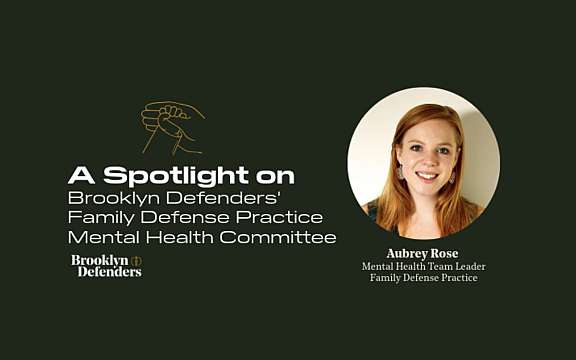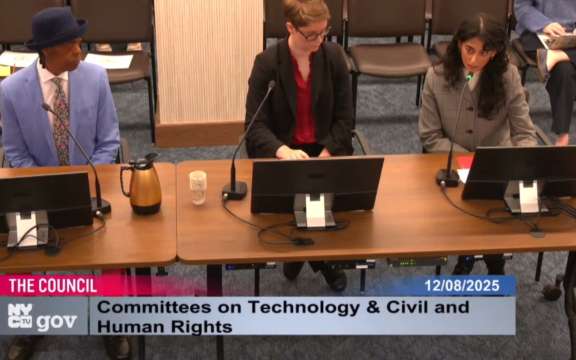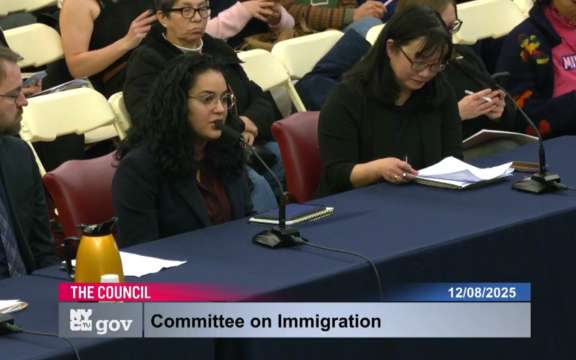Memo of Support - Appeal Waiver Bills
MEMORANDUM OF SUPPORT APPEAL WAIVER BILLS
A5687/S1280 (Cruz/Bailey) A5688/S1281 (Cruz/Bailey)
May 26, 2021
Brooklyn Defender Services (BDS) strongly supports A5687/S1280 (Cruz/Bailey), prohibiting appeal waivers for excessive sentences, and A5688/S1281 (Cruz/Bailey), prohibiting appeal waivers for suppression hearings. Waivers of appeal allow convictions to stand that are often predicated upon serious errors of law or instances of injustice that should be remedied. These waivers shield cases from review and impair a defendant’s right to seek appellate review.
Access to Appellate Review is a Racial Justice Issue
The legislature has found that sentencing and suppression issues involve substantial rights that should survive a guilty plea. Waivers not only thwart legislative intent but also contravene public policy.
At a time when access to justice at all levels is critical and when the national conversation is focused on police misconduct, wrongful convictions and unfairness in the criminal legal system, appeal waivers continue to perpetuate racial inequities and mass incarceration. Black and brown people are disproportionately targeted by police and charged with higher-level crimes in courts for the same underlying conduct which results in the well-documented racial disparities at every stage of the criminal legal system, including plea bargains and sentencing1. The widespread use of appeal waivers begs the question: Are fairness and justice served by precluding appellate courts from considering meritorious or novel issues?
Appellate Review is Essential in Protecting the Rights of the Accused
Because more than 95% of criminal cases end with a guilty plea, the need for appellate review is compelling to ensure that justice was served by these guilty pleas and that the process used to arrive at them was fair. As Judge Wilson noted in his strong dissent in People v. Tiger, 32 N.Y.3d 91, 114 (2018), less than 3% of criminal cases went to trial in 2016. At the same time, he noted that nearly half of exonerations nationally occurred after a guilty plea. Without appellate review, violations of people's rights go uncorrected, trial courts are denied the benefit of appellate guidance, and police and prosecutorial misconduct go unchecked. Waivers increasingly " implicate society' s interest in the integrity of the criminal process." People v. Seaberg 74 N.Y.2d 1, 10 (1989).
Appeal waivers undermine the appellate courts' obligations to ensure convictions were not obtained after substantial error or misconduct has occurred and to protect the integrity of the process. For example, in the suppression context, the strong public policy of ensuring that misconduct, including racial profiling and pretextual stops does not occur in criminal investigations is stronger than the government's interest in the finality of convictions. Insisting on a waiver where unlawful law enforcement actions contributed to a conviction has no meaningful purpose other than to shield misconduct from that review.
Even where an appeal raises only a claim of an excessive sentence, including the denial of youthful offender status, appellate review is a vital check on lifelong convictions, unjustly long sentences, racial disparities in sentencing, and mass incarceration. That bargained-for sentences could be seen as excessive by the appellate court should be a welcome second look on the exercise of prosecutorial discretion in charging and plea bargaining.
The decision to block any chance of review of a criminal case denies the most vulnerable stakeholders in the criminal legal system protection from a system riddled with injustice. The ability to appeal a sentence or suppression hearing is one way New York can confront a legal system that continues to target predominately Black and Latinx communities. For these reasons, BDS strongly supports A5687/S1280 and A5688/S1281.
Any questions can be directed to Yung-Mi Lee, Legal Director, Brooklyn Defender Services, at YLee@bds.org.


